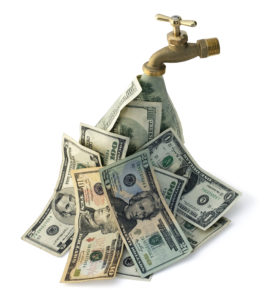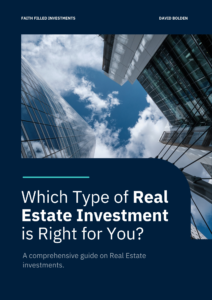September 14, 2019

Today’s Big Question
“Is it wise to invest in real estate with expectations of a recession?”
Due to economic cycles, property values go up and down, but in the long run, real estate always goes up.
The focal point for investors who consistently purchase real estate with a track record of success is CASH FLOW. The question should not be “Should it (the property) Cash Flow?” The best question anyone should ask themselves before investing in real estate, with expectations of surviving the storms is, “HOW MUCH WILL “It” Cash Flow”?

Cash Flow is key to maintaining an investment when hard times appear. Real estate businesses have many moving parts that makes it controllable. The controllable parts are not just coincidental. Those things that are controllable require special skills to maintain and operate when considering worse case scenarios. If the market drops and you’re not receiving any income for the property, it’s now considered a liability and not an asset.
Well known for his knowledge and wisdom of creating wealth through obtaining more assets than liabilities are Robert Kiyosaki – author of Rich Dad Poor Dad – “Assets puts money into your pockets and liabilities take money away.”
One of the biggest mistakes made by investors is purchasing real estate believing it will increase in value, (just because). It’s true that real estate will increase over time, but that belief is solely dependent on location, the market cycle and other factors that determines a property’s value.

Investors in this day and time who partake in this strategy in order to make the numbers work, are playing it very risky. Those who are simply dependent on appreciation think that they’ll sell the property in a short time frame.
I’ll use two to three years as an example; typically, properties (depending on the size of the asset, current value and primarily how it measures to other apartments in the area) at year two or three, will still have a larger amount of debt, compared to holding it an extra two or three years making it a typical five to seven year hold.
The risk factor increases drastically on larger (value add) apartment communities. This unit type require more people with less time to stabilize the property to increase value in which increases risk.
This short-term hold method has worked for investors over the past few years in the current U.S. Multifamily up cycle we are experiencing with record breaking numbers, but at some point, the market will eventually drop, leaving the investors in an uncomfortable, if not dreadful position. Investors do make money doing it this way, but I wouldn’t recommend it, based on decades of history.

More and more people are investing in real estate these days, making it more competitive for investors to find and receive great deals from brokers. There are ways to fight your way through the crowd, “without” fighting your way through the crowd.
It’s great to avoid overbidding and overpaying for properties by finding off market deals. Crowds of people inquiring the same thing are most inclined to do things—like banking on appreciation and assuming the rents are going to steadily rise.
By going direct to owner, you’re in the driver seat without the unwanted weight of “the back-seat drivers” in the vehicle and “Your Ears”, making unwanted noise drawing more attention causing your vehicle (Money) to get less miles if any. Approaching deals this way allow buyers to purchase properties at a discount, where the numbers make sense.
The most important thing is to look at real estate and know that in the long run, if you can just wait it out, it’s going to turn out fine in the end.”




